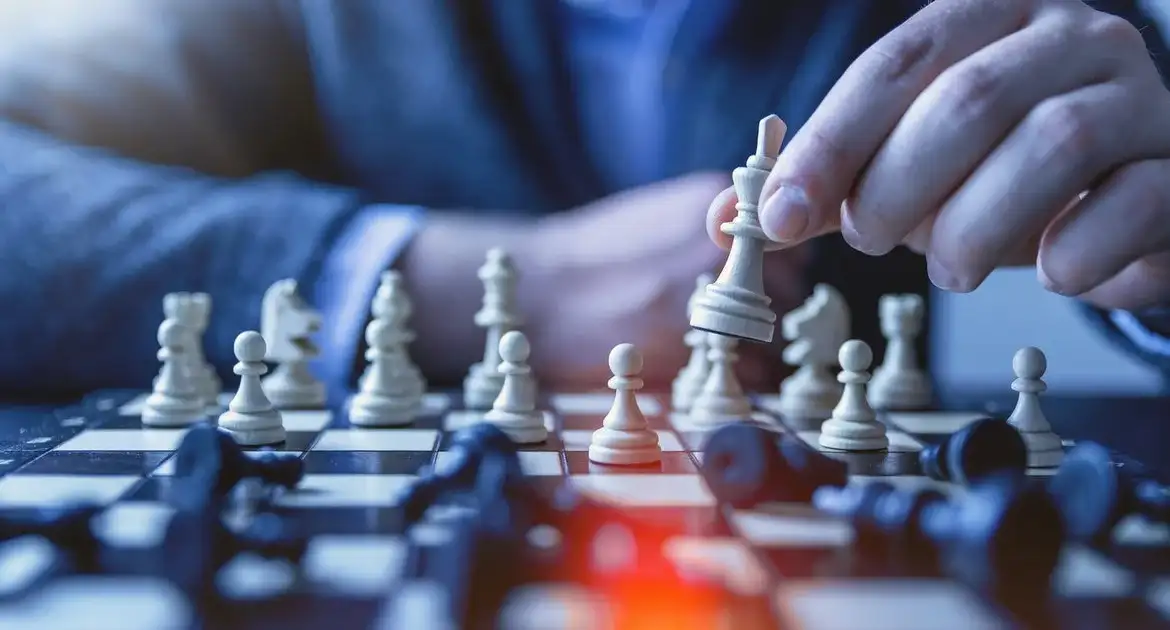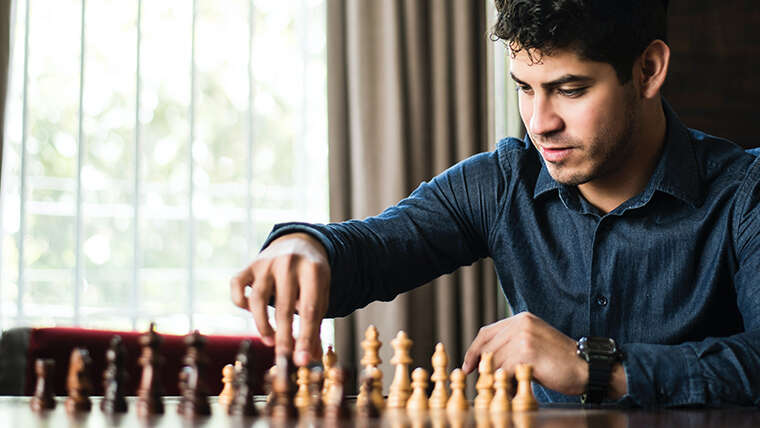Chess is commonly known as a boardgame, but it was actually used to demonstrate superior intellect by the erstwhile Soviet Union as a propaganda weapon- being good at chess meant you were smarter than the rest. While the logic behind this ideology can be debated the fact is that chess is not merely a board game but a game of strategy that tests your reasoning, calculation abilities and even nerves!
These days people play chess for all kinds of reasons, namely, to take up a good hobby, to beat their friend, they were inspired by “The Queen’s Gambit” on Netflix, they want to ‘appear’ smart, they picked up the game in their youth and never really improved, they want to compete and even get a Chess Title from an accredited Chess Association like FIDE or the USCF.
The great thing about chess is that you can play online or in-person. There are many online chess websites like lichess, chess.com, ICC etc. where you can play chess with people from all over the world. You can play blitz chess (shorter time limit) or rapid (longer time limit) and see your progress based on the rating you obtain, and your win/loss record.
In-person chess is also very common and most big cities have chess clubs like the world-famous Marshall Chess Club in New York City. Online private chess lessons are also made it easy for people to learn this game within the comfort of their homes. In smaller cities too there are chess communities and meetups. These clubs offer lectures, books, lessons and even tournaments.
Many chess players were taught the rules by their parents or friends but they never really knew how to execute a strategy or even learn a solid strategy. The chess game is broken into three parts:
1. Opening: In the opening you bring out your pieces and place them strategically against some target in the opponent’s camp. Read more about Opening Game.
2. Middle Game: Once your pieces are developed and your king is safe, you understand some dynamic action and create threats to your opponent. You decipher the sensitive targets and execute your attack. Read more about Middle Game.
3. End Game: Once you undertake dynamic action, many pieces and pawns can get exchanged and you reach a position where you either need to convert your material advantage and win the game or play carefully so as to maintain equality and wait for your opponent to falter. Read more about End Game.
There have been many chess books written on each of the above parts. There are also many videos online but chess players are still full of questions. This is where a private chess coach comes in handy.
Benefits of Private Chess Lesson
- Shortcut: A qualified chess coach has already done the work: studied strategy, tested it out, learned from bitter losses how to overcome them and this is what they will share with you. The coach will tell you what it was like when they were at your level and how they made the jump
- Interactive: You can ask the chess tutor all your queries and get answers live. You can even send them your queries prior to the session so they can prepare and give you your money’s worth
- Mentorship: A chess coach will guide you on how to improve your game independently so you can fast track your progress. A structured chess study plan can be provided for you to learn principles and strategies, test them out in tournaments and also how to analyze your own games. A chess coach in conjunction with a structure chess study plan can do wonders for your growth as a chess player
- Custom Lessons: Chess strategy is not “one and done”. It keeps evolving. Chess theory is never ending and there are constant improvements being made thanks to the use of supercomputers and strong chess engines. A human chess coach can share the latest developments in chess theory, explain the nuances to you and mentor you on how to study chess independently as well. You can also request the chess coach to teach you a particular opening Idea or work on an area of the game where you might need improvement.
- Analysis: You can analyze your games with the chess tutor and learn about new possibilities and variations that you missed during the game. The coach will point out your inaccuracies, explain them, offer alternative moves with analysis to back them and then guide on how to play the same position against a future opponent and beat them
- Tournament Preparation: A private chess tutor will prepare you in all facets of the game, so you are ready to play in chess tournaments and where you know what strategies and plans to employ against each of your opponent’s Opening ideas
A professional chess coach will dedicate their time and energy into honing your chess skills, pointing out your weaknesses and preparing a study plan to overcome them with a structured curriculum and also an independent study plan. Hence, having a private chess coach is essential for improving one’s chess game.



